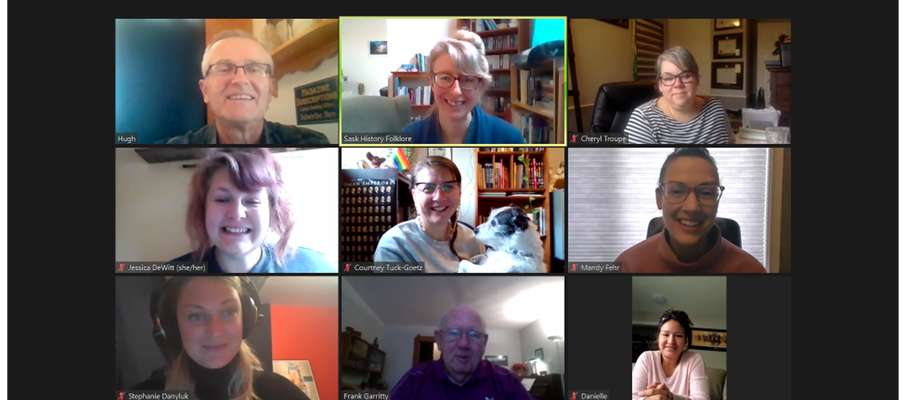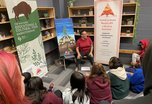Building an Anti-Racist Workplace: SHFS Board and Staff Commit to Training

Related Programs

From statements to pledges to actions, cultural groups are exploring authentic ways to address racism. Like many organizations, the Saskatchewan History & Folklore Society (SHFS) created statements to express their solidarity with Black, Indigenous, and People of Colour (BIPOC) people on issues— such as the confirmation of children’s graves at former Residential schools or key issues in the Black Lives Matter movement – but they did not stop at the statements.
The SHFS board and staff felt it was important to commit to concrete actions by committing to antiracism training. “We wanted something that would help us start to acknowledge and address the ways systemic racism operates within our own organization,” says Kristin EnnsKavanagh, executive director, SHFS. “We hope to come away with an action plan for our organization that is specific to what we do as a nonprofit history organization…there is much that can be done around historical narratives that promote and sustain the status quo.”
The training, AntiRacism – Complete Curriculum, is offered through the Saskatchewan AntiRacism Network. EnnsKavanagh says the team has been through the first two modules of the training, which explored basic concepts, and the structures that support racial injustice. The next module will be about strategies to challenge racism in different spaces.
“For me, it really helped to have an external facilitator come in with excellent data on the impacts and outcomes of racial injustice in Saskatchewan,” she says. “Much work has been done to name and understand the specific structures and processes of racism, and getting access to that information, for me, was really helpful – to fix something, you have to be able to name and describe it, particularly when we are talking about the systemic level.”
When asked for tips that other groups could consider in the fight against racism, she says the right place to start for one group might be different from another.
“For us (SHFS), education has been helpful. For me, too, I think what has been helpful is not seeing antiracism work as something you do once in a session or event. It’s been helpful to see it as a practice that is ongoing in the life of the organization,” she says, adding that as a history organization, they’ve been thinking hard about what their specific role is in this work. “Choosing The Truth and Reconciliation Calls to Action that applied to us helped. For us, the Calls that made the most sense were those directed at museums around ‘education for Reconciliation.’”
She notes that not every initiative has worked out well for the organization – there have been successes, and failures “But we try to acknowledge our mistakes, do what is needed to correct the situation, learn from the experience, and keep going.”
For SHFS, the overall goal is to have a changed organization, to operate more authentically in the world. EnnsKavanagh adds, “For too long history has only told part of the story, so to truly be our authentic selves, we have to operate with the full understanding of where we have come from and how we got here, the good and the bad. It’s not about feeling guilty, it’s about acknowledging the past, learning from it, and moving forward with a different, better legacy for the future.”
SHFS receives funding from Sask Lotteries.



